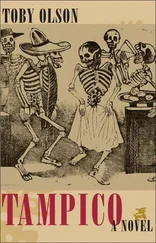Guizot stopped and held up his hands. “Come on, it’s a good song!”
Standing in the finely furnished apartment, Detective Vidot felt guilty. Crimes were always bad, and all too often they were tragic, terrible, and truly awful things, and yet whenever they involved peculiar or unusual circumstances, Vidot inevitably felt a wondrously delicious feeling rise up inside his heart, a delightful sensation that bordered on giddiness, and one that almost always inspired him to break out in an enormous smile. It was a shameful habit that he had long struggled to suppress. He thought it stemmed from the fact that ever since he was a young boy, he had derived enormous pleasure from puzzles, crosswords, jigsaws, anagrams, word games, and riddles. The great mystery stories featuring Dupin, Holmes, and Lecoq had sparked the initial ambition that led to his career. But once he actually became a police detective the smile itself caused unfortunate results, especially when his duties included querying a victim’s grieving relatives, neighbors, or traumatized colleagues. Too many times, that impish grin had slipped across his face, sending the sad souls he was questioning into even more wildly distraught states. Calls had been made, complaints lodged, and over the years, he had strained to erase it from his features, attempting to appear more consoling and sympathetic, yet the little smile always found a way to creep back, dancing at the corners of his mouth, mischievous, almost like a nervous tic.
It was a good thing no friends or family of the unfortunate victim were around now, because this case had him grinning from ear to ear from the moment he had first encountered it.
Atop the hill that rose in the 5th arrondissement, not far from rue Mouffetard, there had once, long ago, been a tall, spiked gate on rue Rataud that protected the chaste, devout nuns living within the monastery. Late in the nineteenth century, city life had grown too chaotic, so the sisters were moved away and the gate had been almost completely disassembled. But due to a series of arguments between the hired laborers, devotees of the protosocialist Saint-Simon, and the more conservative Catholic accountants, the final work was never completed. The gate’s top was left intact, arcing above the lane, its sharp and heavy pointed hooks, primitive precursors of modern concertina wire, curling menacingly down toward the cobblestones below. It was here that they found the body of Leon Vallet hanging early on Monday morning, the iron spikes impaling his thick neck and skull. Blood was splashed down the wall and across the cobblestones like spilled paint.
“How did he even get up there?” had been the first, and remained the most, obvious question. There was no clear answer. One policeman suggested he had somehow fallen from the neighboring building, but Vidot could see that was impossible. The hooks faced downward: Leon Vallet must have been thrust up into them. The small team investigating the scene offered up various theories. Perhaps he was riding atop a tall truck that had driven beneath the gate. But a truck would not be found on these narrow streets, and besides, what would a successful man of finance be doing atop such a truck? Was he taking a hayride? No, no. Perhaps an explosion had thrust him upward? This was easily dismissed, as there were no signs of combustion, either on his body or on the ground below.
“Did anyone report hearing any unusual sounds?” Vidot asked.
“No,” said a patrolman. “We have asked around the neighborhood. They said it was a quiet night.”
Vidot nodded. He looked at the corpse that lay on the street. It had taken the team the better part of an hour to unhook and carefully lower the victim. It was incredible that his skull and neck had been able to support such heavy weight. Vidot would have thought gravity would have pulled the torso down from the hook, splattering the lower body’s contents on the pavement while leaving the impaled head alone on top, but then, he realized, anatomy was a tenacious thing as bones clung to bones much the same way that life clings to life.
Over the following two days, the preliminary basics of the investigation had been covered. Vallet’s wife, Claudette, was informed of the murder. She had been away, at their country château, and learned of her tragedy only upon returning home. She was grief stricken and though she remained a suspect, Vidot deemed it not likely. His one meeting with the woman had revealed a small, murine creature who was most likely easily frightened by strong summer breezes and afternoon shadows, not the sort capable of an act so macabre. Cursory professional inquiries had meanwhile pointed to a wealth of potentially vengeful enemies, as it was revealed that Leon Vallet had not run the most scrupulous business.
More promising still was the discovery, uncovered while inspecting his account books, of an apartment Leon Vallet had been paying for located only blocks from the crime scene. Vidot went to visit the flat, accompanied by three policemen. Entering the spacious rooms, it was immediately clear that whoever had been living there had been well provided for during their stay. There were oil paintings on the walls, expensive linens for the large bed, and a full set of fine Wedgwood porcelain in the sideboard. It did not interest Vidot that Leon Vallet had such a nicely feathered love nest. What did interest Vidot, as he sniffed in the empty dresser and poked at the bare closet, was that Leon’s lover had flown away.
He stood in the middle of the bedroom, considering the various possibilities, as the other policemen continued their search, looking under the bed, behind couch cushions, pulling out the drawers of the small escritoire and knocking gently at the sides of the grand armoire, listening for secret panels. Smiling the way a boy being tickled grins before he finally breaks into laughter, Vidot walked over and examined a silver picture frame. He focused on the empty space inside the frame for a moment, as if observing details of the image that was not there. Then he moved down the mantel, turning his attention to two clocks perched near the center. He went up so close that his inquisitive nose practically touched their glass faces and then pointed at a wide space between them. “A gap,” he said, turning to the young policeman who stood by the door. “You, what is your name?”
“Bemm, monsieur.”
“Well, Bemm, I would like you to ask around at the local pawn shops and antique stores, anything in a five-kilometer radius, and see if you can find a clock, I am guessing it is a very rare clock, that has either been sold to the shop directly or left there on consignment. And if the proprietors have not received one recently, please ask them to keep their eyes open. Indicate, but do not promise, the possibility of a reward.”
Vidot then went into the kitchenette. Looking down past the sink, he was excited to see that the policeman had not yet looked into the small metal garbage pail tucked in beside the counter. This was one of Vidot’s favorite places to search. People tended to be thoughtless with their trash, and even the most cunning criminals had a habit of leaving a wealth of useful materials behind—notes, letters, in one case even a grocery list of various pharmaceutical poisons. Clues dumped in the bin were almost always forgotten by the guilty parties, as if all garbage vanished from reality the moment the lid closed shut. Vidot knew better. He had spent more than a few afternoons knee-deep in the dumps and landfills on the outskirts of the city, foraging for soggy and rotting evidence amid the rich layers of debris. He knew nothing really ever disappeared, it only changed form.
He dumped the bin’s waste into the sink and began picking through it. There was no mail and no personal papers, only three eggshells; a few lemon rinds; scrapings of burnt rice; the unused ends of a baguette; cucumber, onion, carrot scraps; a hunk of moldy cheese; and some soiled sections of Le Monde . There were also fragmentary pieces of bone that at first he thought might be chicken, though they were oddly enmeshed in what seemed to be a tangle of peat moss. He carefully separated this mass from the rest of the trash and placed it on the counter.
Читать дальше












